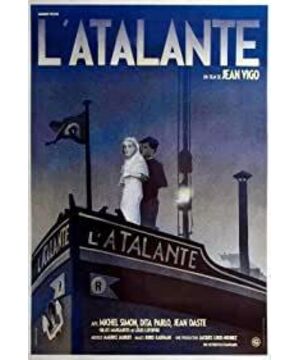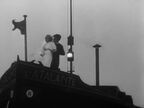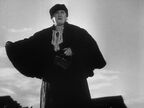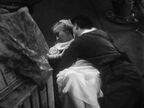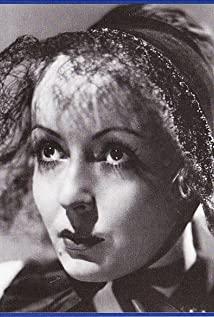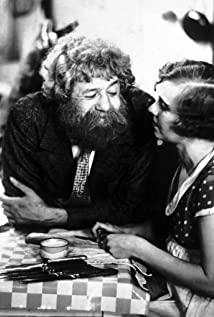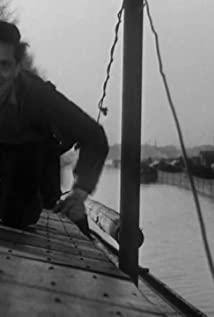Bequeathing posterity 3 shorts and 1 feature, Jean Vigo died of tuberculosis in 1934, aged merely 29, and L'ATALANTE is the feature, a groundbreaking early sound film that wipes the floor with its Hollywood counterpart, not least for its blending of location and studio shooting.
Jean (Dasté), captain of the titular canal barge, gets hitched with a village girl Juliette (Parlo), and their marital life on the barge, together with the seasoned second-in-commander Jules (Simon) and a cabin boy (Lefebvre ), is anything but tranquil. Vigo and his scenarists single out Juliette's vanity, a provincial girl who is mad keen to visit Paris, and Jean's jealousy, a macho husband who gets easily flustered when his pretty wife catches the attention of other men (Margaritis is a terribly agile peddler who, as the sticking point. But all is well that ends well, absence only makes their hearts grow fonder.
Striking overhead shots, extreme close-ups mobilized on a dime, slanted camera angles, those astonishing technique (Boris Kaufman is the man with a movie camera) already manifested in his first short À PROPOS DE NICE (1930), an unconventionalogue travel with pure magickal touches, are integrated with the poetic sensibility and misty ambience to underlie Vigo's distinguished sensuality, notably the montage of the two separated lovebirds longing for each other's caress in their beds is both bold and alluring, and L'ATALANTE is such a candidly sexy film , aestheticizing sexuality in a dreamlike, irresistible fashion that its romantic aroma surpasses everything else. Not to mention Vigo's poetic inspiration of seeing the ones you love by immersing your head in water,and Vigo has already tried those impressive underwater scenes in his second short TARIS (1931), a wonderful swimming tutorial taught by French champion Jean Taris.
The acting is uniformly naturalistic and convincing, Parlo is a dry-eyed heroine, facing adversity with expressive sternness, on top of Juliette's country girl unsophistication and affable subtlety; Dasté demonstrates a very different aspect from his comical turn in Vigo's ZERO FOR CONDUCT (1933 ), a rumbustious rebellion carried off by a bunch of recalcitrant school kids, here, his Jean has an earthy, mulish quality which is rather disarming; however we ought to bow amazement to Simon's droll, tremendously entertaining turn as the scruffy, gobbing-prone Jules. Under a drastic makeover to appear much older than he is, Simon's Jules is a rough diamond who totally defies one's preconception, he is not a secondary character but a veritable protagonist, shown warts and all.Jules' avuncular bond with Juliette is pregnant with the tricky discretion between an unmarried man and a married woman, and it is also up to him to fulfill Vigo's fanciful mission to bring the pair together.
Vigo's magnus opus bickers as refulgently as ever, alas, it also painfully reminds us the warmed-over “what if” question pertaining to how the landscape of world cinema could've been forever advanced by his poetic disposition and directorial flair. Hardly a singular loss can be felt more poignantly than this one in the whole history of the seventh art.
referential entries: Helmut Käutner's UNDER THE BRIDGES (1946, 7.1/10); Jean Renoir's TONI (1935, 7.3/10).
Title: L'Atalante
Year: 1934
Country: France
Language: French, Russian
Genre: Comedy, Drama, Romance
Director: Jean Vigo
Screenwriters: Jean Vigo, Albert Riéra, Jean Guinée
Music: Maurice Jaubert
Cinematography: Boris Kaufman
Editing: Louis Chavance
Cast:
Michel Simon
Dita Parlo
Jean Dasté
Gilles Margaritis
Louis Lefebvre
Raphaël Diligent
Maurice Gilles
Rating: 8.4/10
View more about L'Atalante reviews


